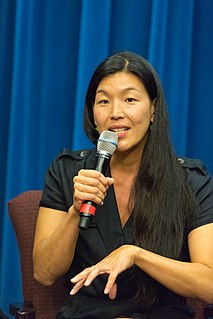A Quote by Mark Zandi
The discussion in Washington has changed dramatically. I mean, it's no longer a question of should we address entitlements - it's no longer a question of do we need to reduce spending in the future.
Quote Topics
Related Quotes
You know, in a workplace, when you shrink the size of a workforce, there is pain there. But there is no question: we have a government that we can no longer afford. That is the cold, hard fact. So we have to make this more efficient. We have to sunset programs that no longer work. We have to eliminate waste and fraud. We must do this.
You know, in a workplace, when you shrink the size of a workforce, there is pain there. But there is no question: we have a government that we can no longer afford.That is the cold, hard fact. So we have to make this more efficient. We have to sunset programs that no longer work. We have to eliminate waste and fraud. We must do this.
Above a certain level of income, the relative value of material consumption vis-a-vis leisure time is diminished, so earning a higher income at the cost of working longer hours may reduce the quality of your life. More importantly, the fact that the citizens of a country work longer than others in comparable countries does not necessarily mean that they like working longer hours. They may be compelled to work long hours, even if they actually want to take longer holidays.
Where we are now is we have resolved the revenue issue and the question is what are we going to do about spending. I wish the president would lead us in this discussion rather than putting himself in a position of having to be dragged kicking and screaming to the table to discuss the single biggest issue confronting our future.
Interruption, incoherence, surprise are the ordinary conditions of our life. They have even become real needs for many people, whose minds are no longer fed by anything but sudden changes and constantly renewed stimuli. We can no longer bear anything that lasts. We no longer know how to make boredom bear fruit. So the whole question comes down to this: can the human mind master what the human mind has made?




































